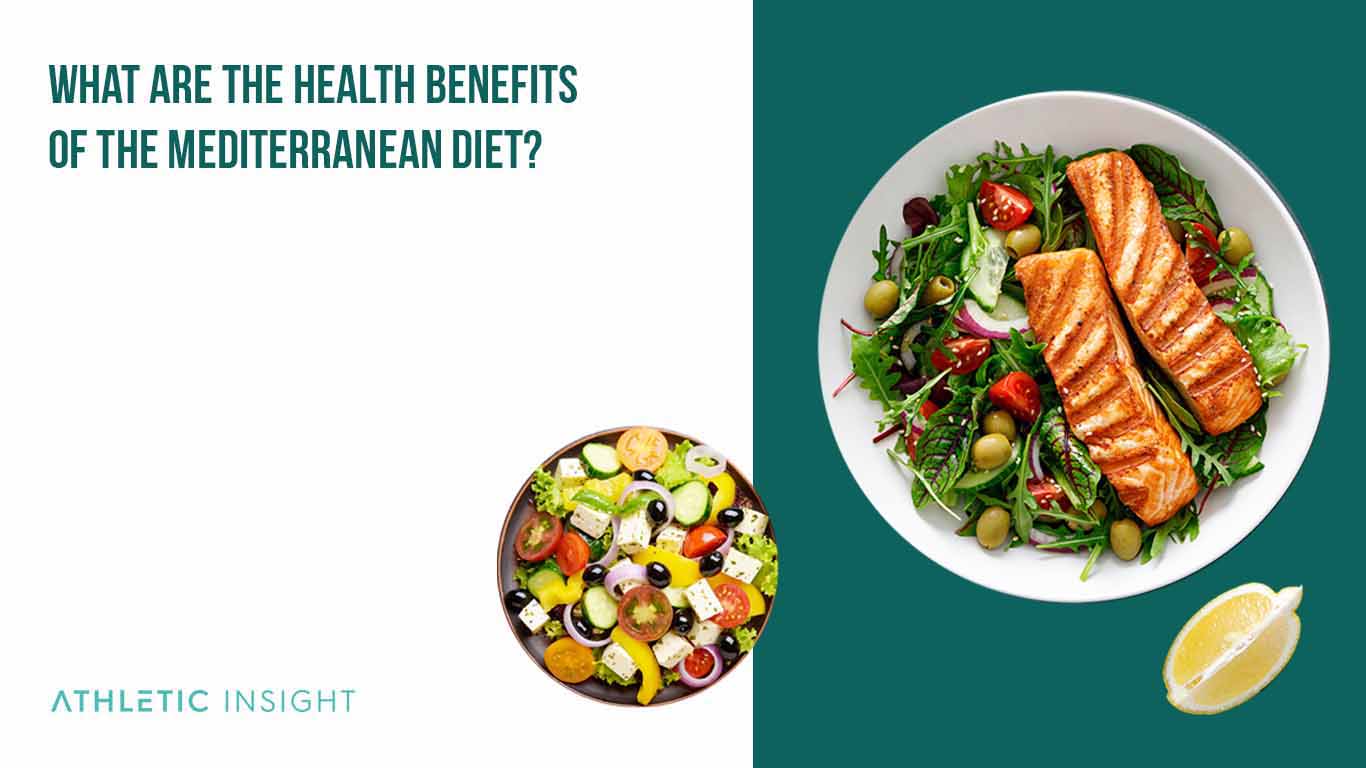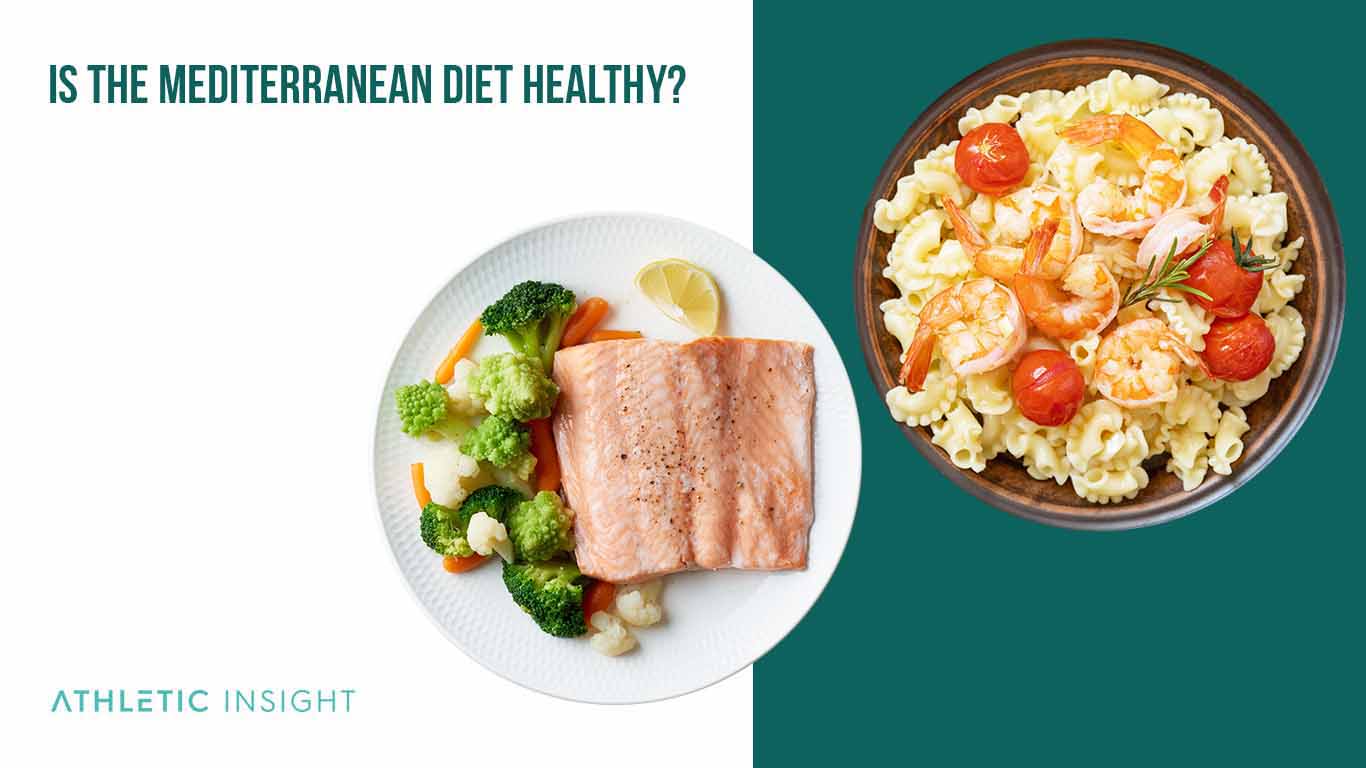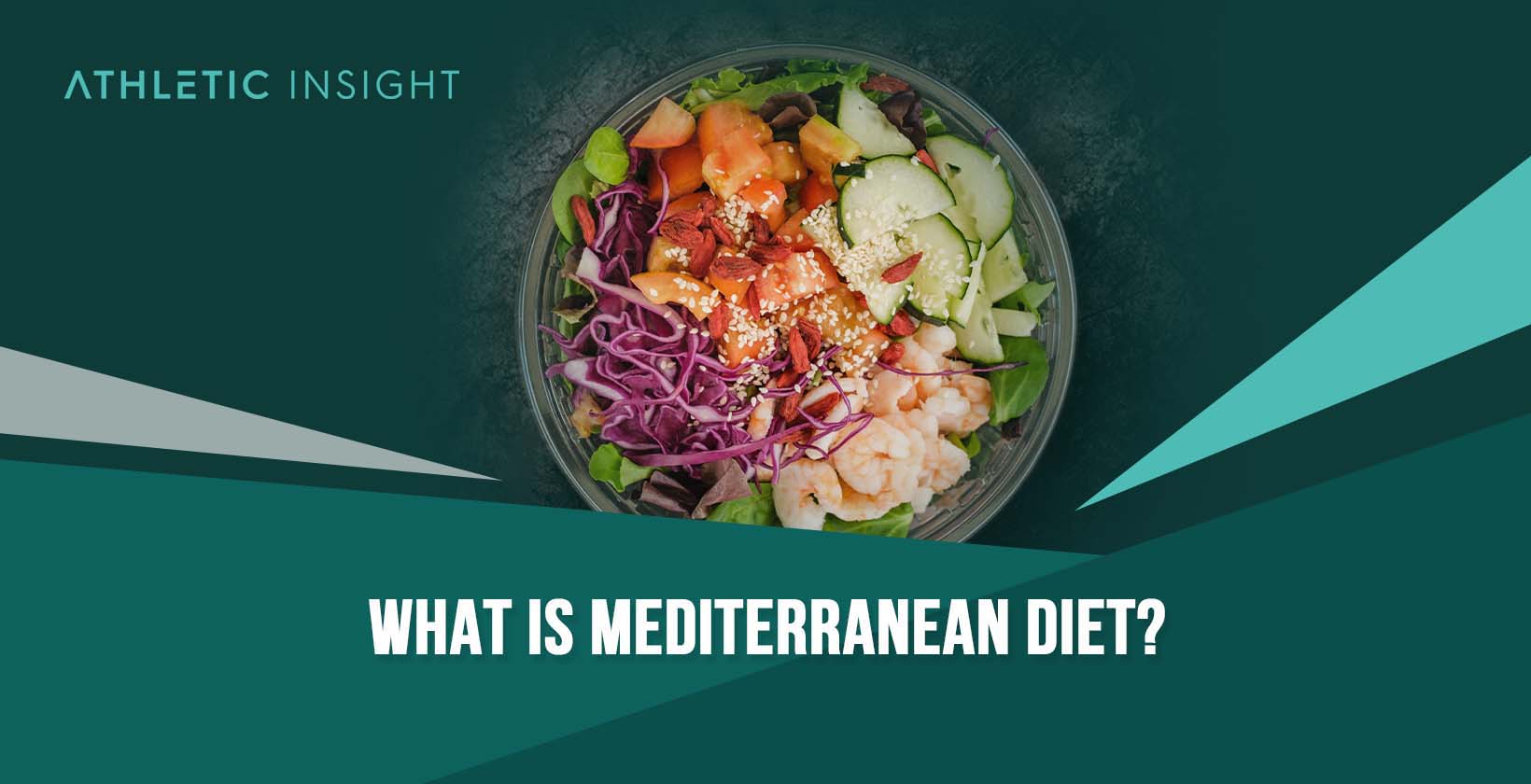The Mediterranean diet is a diet based on the typical foods people eaten in the countries of Italy, Greece, France, Spain, and other regions bordering the Mediterranean Sea. The Mediterran diet consists of foods such as nuts, seeds, fruits, vegetables, oils, and fish.
The health benefits of eating Mediterranean food include preventing heart disease and stroke, improving the likelihood of living longer, and reducing the risk of Type 2 diabetes. A Mediterranean meal plan can also help with weight loss. The restrictions of the diet include avoiding refined grains, trans fat, added sugars, refined oil, and processed foods.
The Mediterranean Diet Pyramid was created in 1993 by the Harvard School of Public Health as an alternative to the USDA’s current food pyramid. Still today, the Mediterranean Diet Pyramid is a popular model that many continue to follow.
How to follow a Mediterranean Diet?
To follow the Mediterranean diet, you will need to create a Mediterranean diet menu listing the type of foods you should have in your kitchen and what you should buy in the grocery store.
What are the Foods to Eat in Mediterranean Diet?
The type of foods you should eat in a Mediterranean style diet include nuts, seeds, olive oil, fruits, vegetables, whole grains, eggs, small amounts of white and red meat, fish, dairy products, and red wine.
What are the Foods that Cannot be Eaten in Mediterranean Diet?
A Mediterranean diet plan avoids particular foods such as processed foods and added sugars. You should not eat the following ingredients when pursuing the Mediterranean diet.
- Sugars not found in natural foods
- Trans fats
- Refined oil
- Refined grains
- Processed meat and other processed food
Tips to Follow the Mediterranean Diet
The top tips for Mediterranean diet basics include focusing more on olive oil instead of butter and eating more fruits and veggies. Increasing the amount of fish in your diet, eating more whole grains, and decreasing high-fat dairy intake are also important ways to follow the Mediterranean diet for better health.
Here are some ways to follow the Mediterranean diet.
- Use Olive Oil Instead of Butter When Sauteing: Add olive oil to a pan when cooking instead of fatty clumps of butter.
- Eat More Fruits and Vegetables: Try different fruits like mango, pineapple, oranges, and strawberries. Vary your vegetable intake focusing on eggplants, squash, broccoli, and colorful bell peppers.
- Choose Whole Grains Instead of Refined: When picking out bread, bagels, rice, and pasta focus on whole grains and take refined grains out of your diet.
- Switch to Fish Instead of Red Meat at Least Twice a Week: Your Mediterranean diet grocery list should include salmon, sardines, cod, tuna, and trout. You should eat fish at least twice a week or more.
- Limit High-Fat Dairy Products: You should only consume high-fat cheeses, whole milk, and fatty, sugary yogurts in small amounts.
What Are the Health Benefits of the Mediterranean Diet?
The benefits of the Mediterranean diet include heart disease and stroke prevention, keeps you active, decreases the chance of Alzheimer’s disease and dementia, cuts Parkinson’s disease risk by half, elongates people’s lifespans, prevents Type 2 diabetes, enables weight loss, decreases inflammation, prevents heart disease and stroke.

Research shows that a Mediterranean diet of occasional wine, extra-virgin olive oil, nuts, fish, veggies, and fruits reduced heart attacks, strokes, and heart disease mortality rates by about 30 percent.
- Keeps You Active: The light fare included in a sample Mediterranean diet tends to keep you less stuffed and more active. You’ll have more energy from this healthy diet and are more likely to participate in sports and exercise.
- Reduces Risk of Alzheimer’s and Dementia: Mediterranean diet foods like olive oil, whole grains, seeds, nuts, fruits, vegetables, and fish tend to benefit the brain. This diet slows down cognitive decline in the elderly and reduces the risk of mild cognitive impairment leading to Alzheimer’s disease.
- Reduces Up to 50% the Chance of Getting Parkinson’s Disease: Research shows that subjects who had high adherence to the Mediterranean diet had a 46 percent lower risk of being diagnosed with Parkinson’s disease as compared to those who didn’t follow the diet.
- Increases the Chances of Having a Longer Life: Several studies have found an association between an elongated lifespan with the Mediterranean diet. So if you want to live far into old age, this is the perfect diet to follow.
- Protects You From Getting Type 2 Diabetes: The Mediterranean diet emphasizes taking excess sugar out of your food intake, which helps prevent people from getting Type 2 diabetes. Researchers found that, by following this Mediterranean-based diet, overweight women decreased their risk of Type 2 diabetes by 30 percent.
- Helps You Lose Weight: Using the Mediterranean diet for weight loss will prove successful. If you follow this diet for at least six months, exercise regularly, and keep your food portions small or moderate, you’ll see significant Mediterranean diet weight loss.
- Reduced Inflammations: Research shows that adopting the Mediterranean diet can decrease inflammation as well as the risk of cardiovascular disease, stroke, diabetes, and arthritis.
What are the possible health risks of the Mediterranean Diet?
The Mediterranean diet does have certain minor health risks that you should consider before partaking in this new dietary change. These potential health risks include weight gain from consuming nuts and olive oil, not getting enough iron in your diet, not obtaining enough calcium due to the lack of dairy in the diet, and regular alcohol intake may lead to addiction.
- It Might Cause Weight Gain From Olive Oil and Nuts: Nuts and olive oil are high in fat and if you consume too much of these foods, you may gain weight.
- You Might Be Low in Iron: Since the Mediterranean diet emphasizes limiting red meat and poultry consumption, you may end up with a low amount of iron in your food intake. If you don’t have enough iron in your system, you will lack hemoglobin in your red blood cells, which makes it difficult for these cells to carry oxygen. This may leave you more tired and short of breath.
- You Might Be Low in Calcium Because of Not Consuming Dairy: The lack of dairy in this diet may lead to a reduced amount of calcium in your food intake. This could negatively impact your skin, nails, hair growth, and even muscle contractions.
- Regular Alcohol Intake Can Be Alarming: People who are at risk of addictions and drug dependencies may need to avoid part of the Mediterranean diet. The diet includes a daily glass of red wine, which may lead some to go overboard. Otherwise, having a moderate amount of wine can boost your heart health.
What is the Mediterranean diet food list?
The Mediterranean diet food list is easy to follow and consists of the following foods.
- Whole grain pasta, rice, and bread
- Fruits, berries, and vegetables
- Seeds, nuts, and olive oil
- A moderate amount of fish and dairy
- A moderate amount of red wine
- A small number of eggs, poultry, and red meat
What is a Sample Menu for Mediterranean Diet?
Below is a sample menu for a Mediterranean diet. As long as you understand which foods can be consumed, the menu can be altered on a regular basis.
- Breakfast: For breakfast, you can try one fried egg with whole wheat toast and sliced avocado. Grab a handful of blueberries for an extra breakfast treat.
- Lunch: For lunch, spread some hummus and tuna on whole grain pita bread as well as spinach, cherry tomatoes, and a sprinkle of olive oil. When choosing a snack, try some smashed avocado on whole-grain toast or a handful of almonds.
- Dinner: Dinner can include baked salmon sprinkled with garlic, salt, and pepper as well as a roasted potato with olive oil. Grab a tasty fruit salad of apples, oranges, bananas, and strawberries for dessert.
What are the Best Recipes to Prepare for Mediterranean Diet?
The best Mediterranean diet recipes include fish like salmon, vegetable stir-fries, turkey and hummus burgers, stuffed peppers, chickpea pitas, and roasted squash with lentils.
What Are the Foods You Can’t Consume in Mediterranean Diet?
The foods you can’t eat while on the Mediterranean diet include added sugar, refined grains, trans fats, refined oils, and processed meats and foods.
- Added Sugar: You should avoid added sugars n sodas, cookies, ice cream, and candy.
- Refined Grains: Stay away from white bread, white rice, and pastries while on this diet.
- Trans Fats: Avoid margarine, butter, shortening, and check food labels for trans fats.
- Refined oil: Don’t use oils like vegetable, sunflower, palm, canola, coconut, and corn oils.
- Processed Meat: You’ll need to stay away from processed meats like hot dogs, bologna, and salami.
- Highly Processed Food: Stay away from junk foods, which usually have highly processed ingredients.
What is an Example Shopping List for Mediterranean Diet?
A possible shopping list includes Mediterranean diet fruits, vegetables and whole grains. Some ingredients include;
- Strawberries and blueberries
- Bananas, apples, and oranges
- Eggplants, squash, zucchini, and bell peppers
- Tomatoes, cucumbers, and avocados
- Whole wheat toast, whole-grain pasta, and brown rice
- Olive oil, salmon, cod, tuna, and sardines
You may spend more money on fruits and veggies than junk food, but you’ll likely save much more on healthcare costs.
What are Other Diets Similar to the Mediterranean Diet?
Some diet plans that are like the Mediterranean diet include the following.
- Flexitarian diet
- Keto diet
- DASH diet
Is the Mediterranean Diet Healthy?

The Mediterranean diet is a healthy diet. Mediterranean food has many benefits like preventing heart disease, helping with weight loss, reducing the risk of Parkinson’s disease and Alzheimer’s disease, elongating one’s lifespan, and decreasing the chance of developing Type 2 diabetes.
What Are Examples of Mediterranean Food?
Examples of Mediterranean food include baked flounder with roasted vegetables and a mix of fruits for dessert.
Is Mediterranean Food Different from the Mediterranean Diet?
Mediterranean food may come specifically from the countries of Italy, Greece, and France, while the diet itself involves ingredients from all over the globe.
Does the Mediterranean Diet Result in Weight Loss?
Yes, the Mediterranean diet results in weight loss. In fact, studies show that the Mediterranean diet has led to more weight loss than low-fat diets.

What Is the Mediterranean Breakfast Diet for Weight Loss?
A Mediterranean breakfast recipe perfect for weight loss includes a breakfast sandwich with spinach, tomatoes, and feta cheese.
What Is the Mediterranean Lunch Diet for Weight Loss?
An excellent Mediterranean lunch recipe for weight loss includes a tuna-spinach salad with orange slices.
What Is the Mediterranean Dinner Diet for Weight Loss?
Greek chicken pasta using whole grain linguini is an excellent Mediterranean dinner recipe for weight loss.
Is the Mediterranean Diet Expensive?
Yes, the Mediterranean diet is expensive. Research shows that the Mediterranean diet is more expensive than other culinary plans. However, the health advantages of this diet mean you may spend less on healthcare needs over the long term.



